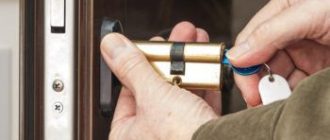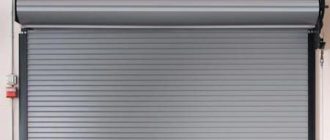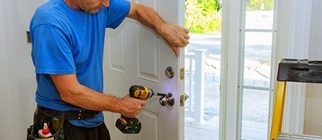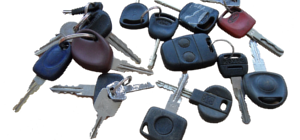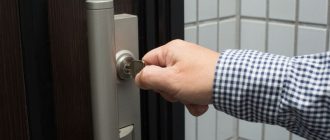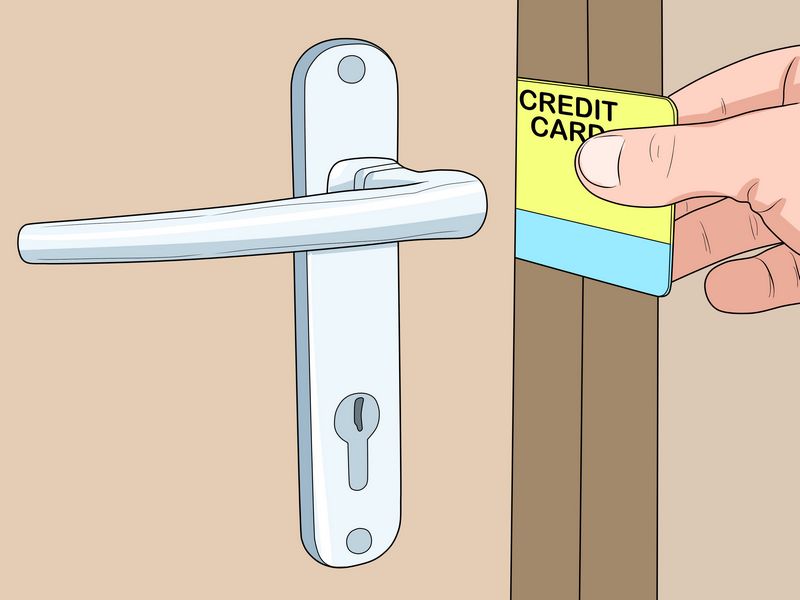
A Short Guide About What To Do If You Are Locked Out Of Your House
Being locked out of your house can be a frustrating and stressful experience. Whether you lost your key or it’s stuck in the lock, finding yourself on the wrong side of a locked door can leave you feeling helpless. However, there are steps you can take to regain access to your home quickly and safely.
First and foremost, try not to panic. It’s natural to feel a sense of urgency, especially if you’re stranded outside in bad weather or late at night. Take a deep breath and compose yourself. Panicking will only cloud your judgment and make it harder to find a solution. Remember that there are practical steps you can take to resolve the situation.
If you find yourself locked out of your house, consider these options:
Check for alternative entry points. Take a walk around your house and look for any unlocked windows or doors. While it may not be a preferred method, climbing through a window or using a back entrance can get you back inside your house.
What to Do If You Are Locked Out of Your House
If you are locked out of your house, it can be a frustrating and stressful experience. However, there are several steps you can take to remedy the situation and regain access to your home.
1. Stay calm: It’s important to try and stay calm, even though being locked out can be upsetting. Take a deep breath and try to approach the situation with a clear mind.
2. Check for alternative entry points: Look around your house to see if there are any other doors or windows that may be accessible. Sometimes a window or a back door might be unlocked, providing an alternative way to get inside.
3. Contact a trusted neighbor or friend: If you have a spare key with a trusted neighbor or friend, give them a call and see if they are available to help you out. They may be able to bring the spare key or assist in finding a locksmith.
4. Call a professional locksmith: If you don’t have access to a spare key or alternative entry point, it’s time to call a professional locksmith. They have the expertise and tools to help you gain entry to your house without causing any damage.
5. Have identification and proof of residence: When you call the locksmith, be prepared to provide them with identification and proof that you live at the address. This is to ensure that you are the rightful owner of the house and not someone attempting a break-in.
6. Don’t attempt to break in: While it may be tempting to try and break into your own house, it’s not recommended. Breaking a window or forcing a door open can cause damage to your property and potentially be dangerous.
7. Learn from the experience: Once you’ve regained access to your house, take some time to reflect on the situation. Prevent future lockouts by taking proactive measures, such as leaving a spare key with a trusted neighbor or installing a keyless entry system.
Remember, being locked out of your house is a common occurrence, and there are always solutions available. By remaining calm and following the steps outlined above, you’ll be back inside your house in no time.
Stay Calm and Assess the Situation
Being locked out of your house can be a stressful and frustrating experience. However, it is important to stay calm and assess the situation before taking any action.
The first thing you should do is try to determine how exactly you got locked out. Did you leave your keys inside the house or lose them? Did the lock malfunction? Understanding the cause of the lockout can help you find the best solution.
Next, consider your options for getting back into your house. If you have a spare key, whether it’s hidden outside or with a trusted neighbor, now is the time to use it. If not, you may need to call a locksmith to help you gain entry.
While waiting for assistance, it’s important to stay safe. If you are locked out late at night or in an unfamiliar area, it may be best to find a nearby public place to wait until help arrives. If you are locked out during daylight hours and feel comfortable doing so, you can wait near your front door or in your car.
Remember, panicking will not help the situation. Take a deep breath, stay calm, and focus on finding a solution. Being locked out of your house is inconvenient, but it can be resolved with the right steps.
Check All Possible Entry Points
If you find yourself locked out of your house, the first thing you should do is check all possible entry points. It’s important to carefully evaluate every potential entrance to determine if there is a way to gain access.
1. Front Door: Check if the front door is unlocked or if there is a spare key hidden somewhere nearby, such as under a welcome mat or in a flower pot. It’s also worth trying to jiggle the doorknob, as sometimes a misalignment can prevent the door from opening.
2. Back Door: If you have a back door, make sure to check it as well. Sometimes people forget to lock their back doors or leave a spare key in an outdoor shed or garage. Look for any signs of vulnerability or potential entry points.
3. Side Windows: Examine all side windows to see if any of them are unlocked or can be easily opened. Be cautious not to damage the window or hurt yourself while attempting to open it. If there is a window with a broken lock, try sliding it open carefully.
4. Basement: If your house has a basement, check the basement door to see if it’s accessible. Some basements have windows or cellar doors that could potentially be used as alternative entry points.
5. Garage: If you have a garage, check the garage door to see if it’s open or if there’s a spare key hidden in there. Additionally, some garages may have a side entry door that you could try to use to gain access to the house.
6. Second-floor Windows: Depending on the layout of your house, you might have second-floor windows that can be accessed with a ladder or some other means. Be extremely cautious while attempting to use this option, as it can be dangerous.
If after checking all possible entry points you still cannot gain access to your house, it’s best to seek professional help from a locksmith or contact a family member or neighbor who might have an extra key.
Contact a Trusted Neighbor
In short, if you are locked out of your house, one of the first things you should do is to contact a trusted neighbor. Having a good relationship with your neighbors can be extremely beneficial in these situations. They may have spare keys to your house or be able to recommend a reliable locksmith.
When reaching out to your neighbor, be polite and explain the situation. Ask if they can help you gain access to your home or if they have any suggestions for getting back inside. It’s important to remember that they may not always be available or able to assist, but it’s worth asking for their help.
If your neighbor has spare keys, they may be able to lend them to you temporarily. This can be a quick and convenient solution to get back into your house. However, be sure to return the keys promptly and thank your neighbor for their assistance.
If your neighbor doesn’t have spare keys or isn’t able to help directly, they may have recommendations for trusted locksmiths in the area. Getting a referral from someone you trust can give you peace of mind knowing that you are working with a reliable professional.
In any case, it’s always a good idea to have a backup plan in case you are ever locked out of your house. You can consider leaving spare keys with a trusted friend or family member who lives nearby. This way, you’ll have an alternative solution readily available if you find yourself locked out again in the future.
Use a Spare Key
If you are locked out of your house, one of the first things you should do is check if you have a spare key. Having a spare key can save you from the frustration and hassle of being locked out. It is recommended to keep a spare key with a trusted neighbor, friend, or family member who lives nearby. This way, you can easily reach out to them in case of an emergency.
When choosing a trusted person to hold your spare key, ensure that they are reliable and responsible. You should also make sure that they are available and willing to help you out when needed. It’s a good idea to inform them if you plan on using them as a backup key holder, so they are aware of the responsibility.
Another option for a spare key is to hide it securely near your house. However, this should be done with caution as hiding a key can make your house vulnerable to break-ins. If you choose this option, make sure to choose a discreet hiding spot that is not easily visible or accessible. Avoid common hiding spots such as under the doormat or in a potted plant.
Remember, having a spare key is only helpful if you can access it when needed. Make sure the spare key is easily retrievable, and you know where it is located. We recommend periodically checking the location of your spare key to ensure it has not been moved or misplaced.
In conclusion, having a spare key can be a lifesaver when you are locked out of your house. Whether you choose to keep it with a trusted person or hide it nearby, having this backup plan can provide peace of mind and save you from a potentially stressful situation.
Try Picking the Lock
If you find yourself locked out of your house, a short-term solution you can try is picking the lock. While it may sound intimidating, with a little patience and the right tools, you may be able to gain access to your house without calling a locksmith.
Call a Professional Locksmith
If you are locked out of your house and don’t know what to do, calling a professional locksmith is a great option. Locksmiths are trained professionals who specialize in opening locks and can help you regain access to your home.
A professional locksmith will have the necessary tools and expertise to determine the best course of action for your specific situation. They can often open locked doors without causing damage to the lock or the door itself.
When calling a locksmith, be prepared to provide details about your situation, such as the type of lock on your door and any additional security measures in place. This will help the locksmith come fully prepared and ensure a smooth and efficient process.
It’s important to choose a reputable and trustworthy locksmith to ensure you are receiving quality service. Look for locksmiths who are licensed and insured, and consider reading reviews or asking for recommendations from friends or family.
While calling a professional locksmith may come with a fee, it can save you time, stress, and potential damage to your property. So, if you find yourself locked out of your house, don’t hesitate to reach out to a professional locksmith for assistance.
Consider Breaking a Window as a Last Resort
If you are locked out of your house and have exhausted all other options, breaking a window may be your last resort. However, this should only be done as a last resort and when there is no other way to gain entry to your home.
Breaking a window can be dangerous and result in injury, so it is important to proceed with caution and take necessary precautions. Here are some steps to consider if breaking a window is your only option:
- Assess the situation: Carefully evaluate the urgency of the situation and determine if breaking a window is absolutely necessary. Consider factors such as weather conditions, time of day, and any potential risk to your safety.
- Choose the right window: Select a window that is easily accessible and least likely to cause harm or damage. Ideally, choose a window that is not located in a high-traffic area or near valuable possessions.
- Protect yourself: Before breaking the window, make sure to protect yourself from flying glass. Wear protective gloves and safety goggles to prevent any injuries.
- Use a proper tool: Avoid using your bare hands or any random object to break the window. Use a hammer, crowbar, or another sturdy tool specifically designed for breaking glass.
- Break the window safely: Aim for a spot near the edges of the window rather than the center to minimize the risk of shattering the glass into sharp shards. Apply controlled force rather than hitting the window with excessive strength.
- Enter with caution: Once the window is broken, carefully remove any remaining glass shards to create a safe passage. Enter your house cautiously to avoid any injuries from broken glass.
- Secure the broken window: After gaining access to your house, it is essential to secure the broken window to prevent further damage or potential break-ins. Use temporary solutions like boards or plastic sheets until you can have the window repaired.
- Repair the window: As soon as possible, contact a professional to repair or replace the broken window. Properly repairing the window will restore the security and safety of your home.
Remember, breaking a window should only be considered as a last resort in emergency situations. It is always recommended to have spare keys or alternative access plans in place to avoid the need for such drastic measures.
Take Steps to Prevent Future Lockouts
Being locked out of your house can be a frustrating and stressful experience. To avoid finding yourself in this situation again, it’s important to take preventive measures. Here are a few tips to help you prevent future lockouts:
1. Duplicate your keys: It’s always a good idea to have spare keys on hand. Consider making duplicates of your house keys and keeping them in a safe place, such as with a trusted friend or family member.
2. Install a keyless entry system: Keyless entry systems can be a convenient and secure option. With a keyless entry system, you can enter your home using a code instead of a traditional key. This eliminates the risk of losing or forgetting your keys.
3. Develop a routine: Make it a habit to check for your keys before leaving your house. Create a routine that involves placing your keys in the same spot every time you return home. This can help you avoid misplacing them or leaving them behind.
4. Give a spare key to a trusted neighbor: If you’re comfortable doing so, give a spare key to a neighbor you trust. This can be helpful in case of emergencies or if you ever find yourself locked out.
5. Upgrade your locks: Consider upgrading your locks to more secure options. Deadbolt locks, for example, provide an extra layer of protection against break-ins and can make it more difficult for intruders to gain access to your home.
By taking these preventive measures, you can reduce the chances of being locked out of your house in the future. Remember, it’s always better to be safe than sorry!
Keep Spare Keys in Secure Locations
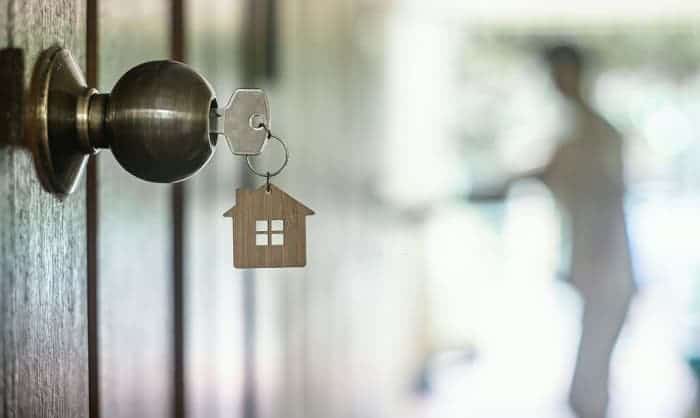
If you are prone to getting locked out of your house, it’s a good idea to have spare keys in secure locations. Here are some suggestions for where to keep them:
- Give a spare key to a trusted neighbor or family member who lives nearby. Make sure it’s someone who is reliable and can be easily reached in case of an emergency.
- Consider investing in a key lockbox that can be mounted outside your home. These lockboxes require a code to access the key inside, ensuring that only authorized individuals can retrieve it.
- Hide a spare key in a discreet location on your property. Be careful not to choose an obvious spot like under the doormat or in a potted plant, as burglars often know to check these common hiding places. Instead, opt for a less predictable spot, such as inside a fake rock or behind a loose brick.
- If you have a close friend or family member who lives nearby, you could also ask them to hold onto a spare key for you. This is especially helpful if they have a secure location to store it, such as a safe or lockbox.
By taking the time to keep spare keys in secure locations, you can save yourself the frustration and inconvenience of being locked out of your house.
Install a Keyless Entry System
If you frequently find yourself locked out of your house, one solution you may want to consider is installing a keyless entry system. This can provide you with a convenient and secure way to access your home.
Keyless entry systems eliminate the need for traditional keys and instead use a code or electronic fob to unlock your doors. This means that you won’t have to worry about losing or forgetting your keys ever again. Plus, you can easily change the code or deactivate the fob if necessary.
There are different types of keyless entry systems available, so you can choose one that best suits your needs. Some systems have a touchpad where you enter a code, while others use biometric technology like fingerprint recognition or facial recognition. These advanced systems provide an extra layer of security.
Installing a keyless entry system is a relatively simple process that can be done by a professional locksmith or as a DIY project if you’re handy. Make sure to follow the manufacturer’s instructions carefully and test the system to ensure it’s functioning properly.
Having a keyless entry system can also be practical for other reasons. For instance, if you have children who come home from school while you’re still at work, you can give them a unique code to let themselves in. Additionally, you can easily grant access to guests or housemates without having to provide them with physical keys.
Overall, a keyless entry system can offer you convenience, security, and peace of mind. By investing in this technology, you’ll no longer have to worry about being locked out of your house again.
Share Spare Keys with Trusted Friends or Family
If you find yourself locked out of your house, one of the best things you can do is to have spare keys with trusted friends or family members. This way, even if you are locked out, you can easily access a spare key and regain entry to your house.
It’s important to choose individuals who you trust completely and who are willing to help you out in case of an emergency. Make sure to explain the situation to them and provide clear instructions on where they can find the spare key. Keep in mind that you should only share spare keys with people you know well and who live in close proximity to your house.
One option is to give your spare key to a neighbor who you can rely on. This can be especially helpful if you frequently forget or lose your keys. Just make sure to choose a neighbor who is trustworthy and is often at home to assist you.
Another option is to share spare keys with close friends or family members who live nearby. This can be beneficial if you are locked out during non-business hours when it may be more difficult to find a locksmith or get assistance. Make sure to communicate with them beforehand and have a plan in place for accessing the spare key when needed.
Remember, sharing spare keys is a convenient solution, but it’s important to do so in a responsible manner. Choose trusted individuals, let them know your situation, and make sure to have a plan in place for accessing the spare key when needed. By taking these precautions, you can avoid the stress and hassle of being locked out of your house.
Create a Lockout Plan
Being locked out of your house can be a stressful experience. To avoid any unnecessary panic or confusion, it is important to have a lockout plan in place. Here are a few steps you can take to create your own lockout plan:
1. Evaluate the potential risks: Take some time to consider the possible scenarios that could lead to getting locked out of your house. This could include losing your keys, a malfunctioning lock, or simply forgetting to bring your keys with you when you leave.
2. Identify backup options: Once you understand the potential risks, brainstorm backup options that could help you regain access to your house. This could involve having a spare key hidden in a secure location or giving a trusted neighbor or family member a spare key.
3. Communicate the plan: Make sure to discuss and communicate your lockout plan with everyone in your household. Clearly explain the backup options and assign responsibilities to each family member. This way, everyone will be aware of what to do if they find themselves locked out.
4. Test the plan: It is crucial to test the efficacy of your lockout plan. Choose a time when everyone is home and simulate a lockout situation. This will help you identify any potential flaws or areas that need improvement.
5. Make necessary adjustments: Based on the test results, make any necessary adjustments to your lockout plan. This could involve changing the location of spare keys or adding additional backup options.
By creating a lockout plan, you can alleviate some of the stress and frustration that comes with being locked out of your house. Remember to regularly review and update your plan to ensure its effectiveness.
Keep Contact Information for Locksmiths Handy
If you ever find yourself locked out of your house, it can be a stressful situation. One way to ensure that you are prepared for such an event is to keep the contact information for locksmiths handy.
Locksmiths are professionals who specialize in opening locked doors, and they can help you regain access to your house in a short amount of time. By keeping their contact information readily available, you can quickly call for assistance when you find yourself locked out.
It is advisable to save the locksmith’s phone number in your phone, write it down and keep it in your wallet or purse, or even create a contact card that you can keep on your keychain. You never know when you might need their services, so it’s better to be prepared.
In addition to their phone number, it can also be helpful to have some additional details about the locksmiths you choose to save. This could include their business name, address, and hours of operation. This information can come in handy if you need to contact them outside of their regular business hours.
In conclusion, keeping contact information for locksmiths handy is an essential part of being prepared in case you’re locked out of your house. By taking a few minutes to save their information, you can save yourself the stress and inconvenience of being locked out for an extended period of time.
Install Security Cameras
If you are concerned about the security of your house, installing security cameras can be a great option. Security cameras can help deter potential burglars and provide you with valuable evidence if a break-in does occur.
When choosing security cameras, there are a few factors to consider:
- Placement: Decide where you want to place the cameras. Common areas include entrances, backyards, and driveways.
- Type: There are different types of security cameras available, such as wireless cameras, wired cameras, and IP cameras. Choose the type that suits your needs and budget.
- Features: Consider the features you want in your security cameras, such as night vision, motion detection, and remote access.
Once you have chosen the right security cameras for your house, follow the manufacturer’s instructions for installation. It’s important to install the cameras in a visible location to deter potential burglars. Make sure the cameras are positioned to capture clear and unobstructed footage.
Remember to regularly check the cameras and their recordings to ensure they are functioning properly. Also, consider connecting the security cameras to a monitoring system or an app on your mobile device for real-time alerts and access to live footage.
Installing security cameras can provide you with peace of mind knowing that you have an extra layer of protection for your house. It’s best to consult with a professional if you are unsure about the installation process.
Learn Lockpicking Skills as a Backup
If you find yourself locked out of your house and in a short amount of time, you can’t wait for a locksmith to arrive, it may be helpful to learn lockpicking skills as a backup solution. While lockpicking should only be used in emergency situations when you are locked out of your own property and have exhausted all other options, having this skill can provide a sense of security and peace of mind.
Lockpicking is a technique used to manipulate the components of a lock without the original key. It requires practice, patience, and knowledge of lock mechanisms. The goal is to imitate the action of the key by pushing, lifting, and turning the lock pins, allowing the lock to be opened without damaging it.
Before attempting to learn lockpicking, it is important to understand that it is illegal to use this skill for any malicious or illegal purposes. Lockpicking should only be used in situations where you have the legal right to access the property.
There are various resources available to help you learn lockpicking, such as books, online tutorials, and lockpicking kits. It is recommended to start with basic locks and gradually progress to more complex ones as you gain confidence and proficiency.
Lockpicking is a delicate skill that requires finesse and precision. It may take time to develop the necessary muscle memory and understanding of lock mechanisms, so patience and persistence are key. Practice in a controlled environment and never attempt to pick a lock that is in use or that you do not have legal authority to access.
Remember, lockpicking should only be used as a last resort when you are locked out of your house and have no other options available. If possible, always try to contact a professional locksmith to ensure a safe and legal solution to your lockout situation.
Stay Proactive in Maintaining Home Security
When it comes to the safety and security of your home, it’s important to be proactive. By taking certain steps and staying vigilant, you can reduce the risk of being locked out of your house or experiencing a break-in. Here are some tips to help you maintain home security:
- Make sure all doors and windows are locked before leaving the house.
- Consider installing security cameras or an alarm system to deter potential intruders.
- Keep your yard well-maintained and free from overgrown bushes or trees that can provide hiding spots for criminals.
- Don’t leave spare keys in obvious places, such as under doormats or flower pots.
- Instead, consider giving a spare key to a trusted neighbor or family member.
- Regularly check the condition of your locks and replace them if they are old or damaged.
- Consider reinforcing your doors and windows with security film or bars to make them more resistant to break-ins.
- Be cautious about who you give access to your home, such as contractors or service providers, and consider changing your locks if necessary.
- Keep your valuables out of sight from windows to avoid tempting potential thieves.
- Consider installing motion sensor lights around your property to deter criminals.
By staying proactive in maintaining home security, you can limit the chances of ever being locked out of your house or experiencing a break-in. Remember, prevention is always key!
Q&A:
What should I do if I accidentally locked myself out of my house?
If you find yourself accidentally locked out of your house, the first thing you should do is stay calm. Then, check for any open windows or doors that you may have left unlocked. If there are none, you can try calling a trusted friend or family member who may have a spare key, or contact a professional locksmith to help you gain entry to your home.
Is it possible to unlock my house without calling a locksmith?
In some cases, it is possible to unlock your house without calling a locksmith. If you have a spare key hidden somewhere on your property, you can try to locate it and use it to gain entry. Additionally, you can attempt to pick the lock yourself using a lock-picking tool, although this may require some skill and knowledge. However, it is important to remember that attempting to unlock your house without proper training or tools may cause damage to the lock or door.
How much does it usually cost to hire a locksmith to unlock a house?
The cost of hiring a locksmith to unlock a house can vary depending on various factors such as the time of day, your location, and the complexity of the lock. On average, you can expect to pay between $50 to $150 for a locksmith to unlock your house. It is always a good idea to contact multiple locksmiths in your area to get a quote and compare prices before making a decision.
What should I do if I locked myself out of my house and there’s no one around to help?
If you find yourself locked out of your house and there is no one around to help, there are a few things you can try. First, check to see if any of your neighbors are home and willing to lend a hand. If not, you can try to find a nearby public place with Wi-Fi and access your phone or computer to search for a local locksmith. Alternatively, you can contact your landlord or property management company if you are renting, as they may be able to provide assistance or contact a locksmith on your behalf.
What precautions should I take to prevent getting locked out of my house in the future?
To prevent getting locked out of your house in the future, there are several precautions you can take. First, make sure to always have a spare key accessible, whether it’s hidden in a secure location outside or given to a trusted neighbor or family member. You can also consider installing a keyless entry system or a smart lock that can be controlled remotely. Additionally, it’s a good idea to develop a routine of always checking for your keys before leaving the house and implementing reminders or alarms to help you remember.
What should I do if I accidentally lock myself out of my house?
If you accidentally lock yourself out of your house, there are a few things you can try. First, check if there are any open windows or doors that you can use to get back inside. If not, you can try calling a locksmith to help you regain access. Another option is to contact a neighbor or family member who has a spare key to your house. If all else fails, you may need to consider breaking a window or calling the police for assistance.
Is there a way to prevent myself from getting locked out of my house?
While accidents happen, there are a few steps you can take to reduce the chances of getting locked out of your house. First, always make sure to have a spare key in a safe place, such as with a trusted neighbor or family member. You can also consider installing a keypad or smart lock system that allows you to enter your home using a code or your smartphone. Additionally, develop a routine of always checking for your keys before leaving the house to ensure you have them with you.

